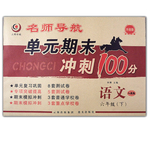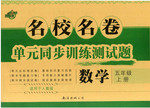题目内容
My Experience in a Free School
At first I couldn't believe it! There were no 1in rows; no bells rang; no one had to go to2 . Although we all lived “in”, 3made us go to bed at a certain time; there was no “lights out”.
The 4thing was that practically all the students went to class, 5very few people stayed up late at night. Only the new people stayed up or 6lclass. The new ones always went wild 7, but this never lasted long. The 8took some getting used to. Our teachers treated us like9; never did we have to 10“stand up”,“sit down”,“speak out”. I don't 11one student who didn't try his best.
The subjects were the same as those in 12school, but what a difference in the approach(方式)! For example, in botany(植物学) we had 13classes in the spring or fall, but instead we 14[ZZ(Z)39two gardens, a vegetable garden and a flower garden. 15in winter we each studied a few 16lthings about what we had grown. In math the students built three different kinds of storerooms small ones 17,but usable. They did this instead of having lessons in the classroom. They really had a 18time too, designing everything, drawing the blueprints, 19the angles(角度) and so on. I didn't take 20.I can't stand it! Besides, I could do the basic things with numbers. That's 21!
22I think I am a 23person for having gone to the school. I can read and write as well as anyone else my age, and I can think better. That's probably a real big24 between the free school and regular school—the amount of 25.
- 1.
- A.desks
- B.lights
- C.students
- D.buildings
- A.
- 2.
- A.home
- B.bed
- C.class
- D.work
- A.
- 3.
- A.anybody
- B.nobody
- C.teachers
- D.parents
- A.
- 4.
- A.sad
- B.last
- C.good
- D.strange
- A.
- 5.
- A.and
- B.but
- C.so
- D.yet
- A.
- 6.
- A.attended
- B.took
- C.missed
- D.studied
- A.
- 7.
- A.from then on
- B.at first
- C.once more
- D.just then
- A.
- 8.
- A.freedom
- B.habit
- C.time
- D.people
- A.
- 9.
- A.workers
- B.pupils
- C.gardeners
- D.grown?ups
- A.
- 10.
- A.understand
- B.study
- C.play
- D.say
- A.
- 11.
- A.hear from
- B.feel like
- C.think about
- D.know of
- A.
- 12.
- A.night
- B.regular
- C.small
- D.real
- A.
- 13.
- A.all
- B.short
- C.no
- D.indoor
- A.
- 14.
- A.planted
- B.studied
- C.drew
- D.toured
- A.
- 15.
- A.Still
- B.Then
- C.Yet
- D.Next
- A.
- 16.
- A.wild
- B.successful
- C.usual
- D.particular
- A.
- 17.
- A.as well
- B.after a while
- C.of course
- D.as a result
- A.
- 18.
- A.funny
- B.great
- C.convenient
- D.thoughtful
- A.
- 19.
- A.looking out
- B.taking out
- C.finding out
- D.figuring out
- A.
- 20.
- A.math
- B.care
- C.botany
- D.notice
- A.
- 21.
- A.dull
- B.interesting
- C.enough
- D.dangerous
- A.
- 22.
- A.On the whole
- B.Once again
- C.Sooner or later
- D.After a while
- A.
- 23.
- A.careful
- B.better
- C.busier
- D.lovely
- A.
- 24.
- A.problem
- B.chance
- C.difference
- D.change
- A.
- 25.
- A.reading
- B.gardening
- C.teaching
- D.thinking
- A.
ACBDA CBADC DBCAB DCBDA CABCD
1.在教室里没有排成一排排的课桌。答案为A。
2. 没有人必须去上课。答案为C。
3.没有人强迫我们在一定的时间上床睡觉。答案为B。
4.更奇怪的是所有的学生都去上课。答案为D。
5.这里表示并列,所以要填and。答案为A。
6.只有新来的学生缺课。“缺课”英语是“missed class”。答案为C。
7.新学生在开始的时候表现粗野。答案为B。
8.free school的特点是拥有较多的freedom,所以这个句子表达的是:新学生逐渐习惯于这种自由的生活。答案为A。
9. 教师像对待成年人一样对待学生。答案为D。
10.我们从来不必表演“起立”“坐下”等这些动作。答案为C。
11.know of是听说的意思。答案为D。
12.作者在这篇短文中讲述的是自由的学校,而其它学校则是正规的学校。A项night school“夜校”;C项small school“小学校”;D项real school“真正的学校”;free school也是真正的学校,并且也有可能是小学校。根据文意,答案为B。
13.在春季和秋季没有植物课。答案为C。
14.planted two gardens的意思是我们有两个花园。答案为A。
15.从上文中的the spring or fall和下文中的winter可知,动作是按顺序时间发生的,所以应填then。答案为B。
16.研究几种自己种植的特殊的植物。答案为D。
17.storeroom虽然小,但是可以使用。答案为C。
18.great在此为“(时间)久的”意思。这句话意思为:学生们要花费很多的时间进行设计,画出图纸,计算角度等。答案为B。
19. figuring out的意思是“计算出”。答案为D。
20. 从上文可知,作者没有学习数学。答案为A。
21.作者认为,能用数字做一些基础工作就完全足够了。答案为C。
22.On the whole的意思是“大体上”“基本上”。答案为A。
23.作者认为自己是较好的学生。答案为B。
24.自由学校和正规学校之间的不同点。答案为C。
25.从上文可知,作者认为自己比同龄人更会思考。所以他认为自由学校和正规学校的最大区别是思考的分量。A项reading“阅读”;B项gardening“园艺”;C项teaching“教学”。答案为D。
1.在教室里没有排成一排排的课桌。答案为A。
2. 没有人必须去上课。答案为C。
3.没有人强迫我们在一定的时间上床睡觉。答案为B。
4.更奇怪的是所有的学生都去上课。答案为D。
5.这里表示并列,所以要填and。答案为A。
6.只有新来的学生缺课。“缺课”英语是“missed class”。答案为C。
7.新学生在开始的时候表现粗野。答案为B。
8.free school的特点是拥有较多的freedom,所以这个句子表达的是:新学生逐渐习惯于这种自由的生活。答案为A。
9. 教师像对待成年人一样对待学生。答案为D。
10.我们从来不必表演“起立”“坐下”等这些动作。答案为C。
11.know of是听说的意思。答案为D。
12.作者在这篇短文中讲述的是自由的学校,而其它学校则是正规的学校。A项night school“夜校”;C项small school“小学校”;D项real school“真正的学校”;free school也是真正的学校,并且也有可能是小学校。根据文意,答案为B。
13.在春季和秋季没有植物课。答案为C。
14.planted two gardens的意思是我们有两个花园。答案为A。
15.从上文中的the spring or fall和下文中的winter可知,动作是按顺序时间发生的,所以应填then。答案为B。
16.研究几种自己种植的特殊的植物。答案为D。
17.storeroom虽然小,但是可以使用。答案为C。
18.great在此为“(时间)久的”意思。这句话意思为:学生们要花费很多的时间进行设计,画出图纸,计算角度等。答案为B。
19. figuring out的意思是“计算出”。答案为D。
20. 从上文可知,作者没有学习数学。答案为A。
21.作者认为,能用数字做一些基础工作就完全足够了。答案为C。
22.On the whole的意思是“大体上”“基本上”。答案为A。
23.作者认为自己是较好的学生。答案为B。
24.自由学校和正规学校之间的不同点。答案为C。
25.从上文可知,作者认为自己比同龄人更会思考。所以他认为自由学校和正规学校的最大区别是思考的分量。A项reading“阅读”;B项gardening“园艺”;C项teaching“教学”。答案为D。

练习册系列答案
 名师导航单元期末冲刺100分系列答案
名师导航单元期末冲刺100分系列答案 名校名卷单元同步训练测试题系列答案
名校名卷单元同步训练测试题系列答案
相关题目